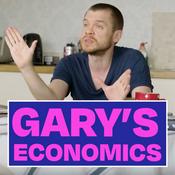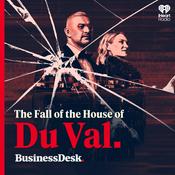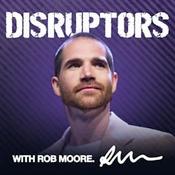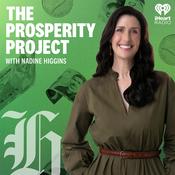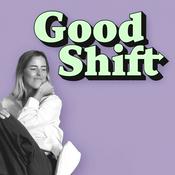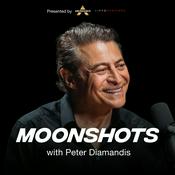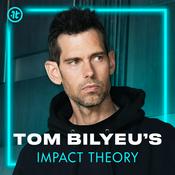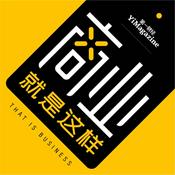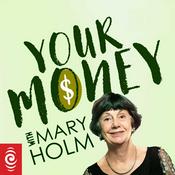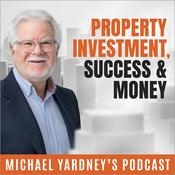22 episodes

S3 | E8 – Adrian Macneil (Co-Founder & CEO at Foxglove) on Developer Tools for Robotics, and Why Ambitious Kiwis Need to Go — and Come Back Smarter
01/5/2025 | 52 mins.
Episode SummaryAdrian Macneil grew up packing kiwifruit in rural New Zealand, now he’s building the core infrastructure powering the future of robotics. After leading engineering teams at Cruise and Coinbase, Adrian co-founded Foxglove, a developer platform used by robotics companies worldwide, from autonomous tractors to warehouse bots.In this episode, Adrian shares how Foxglove emerged from an internal Cruise demo, why robotics is finally having its “PC moment,” and what it really takes to build a startup that lasts. We cover:• How Cruise helped pioneer self-driving cars (and what went wrong post-acquisition)• Why developer tools are the missing layer holding robotics back• Lessons from Coinbase, Cruise, and scaling teams from 30 to 1,200• The case for Kiwi founders to leave New Zealand, at least for a while• What robotics startups can learn from the rise of SaaS• The value of building boring robots that just move riceWe also dive into Adrian’s early days hacking e-commerce in Thailand, how government jobs don’t prepare you for startups, and why he believes the robotics industry will 100x in the next decade.Time Stamps03:30 When an internal tool became a startup idea07:42 Cruise vs GM: Startup chaos inside a legacy giant12:47 Foxglove’s customer base: From tractors to warehouses16:15 Why Foxglove won’t build robots — and what they’re building instead21:54 The “1980s PC” moment for robotics27:41 If not Foxglove — what robotics startup would Adrian build?30:15 From kiwifruit packhouses to automation inspiration36:35 Why ambitious builders still need to go to Silicon Valley41:36 The 10-year mindset needed to build a real company47:50 How the Kiwi diaspora can supercharge the next generationResources🧠 Adrian Macneil’s LinkedIn: https://www.linkedin.com/in/adrianmacneil/🛠️ Foxglove – Developer tools for robotics: https://foxglove.devDiaspora.nz is part of Day One.Day One helps founders and startup operators make better business decisions more often. To learn more, join our newsletter to be notified of new Diaspora.nz episodes and upcoming shows.

S3 | E7 - Xavier Collins (CEO at Wonder) on AI’s creative revolution, building thriving marketplaces, and reshaping the film industry
17/4/2025 | 55 mins.
Episode SummaryXavier Collins, London-born and New Zealand-raised, is no stranger to building marketplaces that scale. After early days at Uber, Xavier joined Nexus Notes before launching Deliveroo into dozens of UK cities and spearheading Turo’s growth across Europe. Now he’s applying his marketplace magic to the film industry with Wonder, an AI-native creative studio backed by Blackbird, LocalGlobe, and a host of world-class angels.In today’s episode, Xavier takes us deep into the creative frontier of AI and storytelling, exploring how technology can unlock new levels of creativity, reshape entertainment financing, and give more filmmakers a voice. We cover:• How AI is redefining storytelling and enabling more scripts to reach production• Lessons from building successful marketplaces at Uber, Deliveroo, Turo, and Nexus Notes• The keys to marketplace success: seeding liquidity, focusing on quality supply, and defining user experience• Why the entertainment industry is overdue for disruption (and how Wonder is leading the charge)• How filmmakers and creatives can harness AI to amplify their visionWe also dive into Xavier’s unique journey—from narrowly missing a consulting career to hustling his way through startups, and the unforgettable Cannes moment that launched Wonder.Time Stamps02:49 The Cannes moment: Realising AI will reshape filmmaking07:18 Using AI to rescue stories that wouldn’t otherwise be told10:56 The life-changing phone call that sent Xavier into startups19:37 Early lessons on marketplace liquidity from Deliveroo and Turo25:52 Price, selection, and service: The three pillars of marketplace success32:16 Services vs SaaS: Rethinking business models in the AI age41:05 Financing films 101: Inside Xavier’s other venture, Lumiere Ventures48:26 Xavier’s advice to young people: Lean into AI nowResources🙋🏻♂️ Xavier Collins’s LinkedIn: https://www.linkedin.com/in/xaviercollins/✨ Wonder – AI-native creative studio: https://www.wonder.incDiaspora.nz is part of Day One.Day One helps founders and startup operators make better business decisions more often. To learn more, join our newsletter to be notified of new Diaspora.nz episodes and upcoming shows.

S3 | E6 - Anton Jackson Smith (b.next) on building synthetic cells, programmable biology, and the future of biotech
10/4/2025 | 51 mins.
Episode SummaryAnton Jackson Smith is a synthetic biologist, Stanford PhD, and founder of b.next—a startup building synthetic cells from scratch to make biology truly programmable. Think of it as rewriting life’s codebase, with applications ranging from cancer treatments and diagnostics to lab-grown foods and smart crops.In today’s episode, Anton breaks down what synthetic cells actually are (and why they matter), how his open-source platform Nucleus is changing the way biology is engineered, and why the future of medicine, agriculture, and climate tech might be written in DNA.We also dig into his journey, from coding in Queenstown and law school in Otago, to cutting-edge research in Silicon Valley, and how a random article on programmable E. coli changed everything.In this conversation, we cover:• How synthetic cells could power the next generation of therapeutics and diagnostics• Why biology needs its own “AWS moment” and how open source can unlock it• The real business model behind synthetic biology (and why it's not just science)• How Kiwi strengths in agriculture and biotech could shape a global future• What New Zealand needs to do to retain and return its brightest mindsAnton also shares his vision for a safer, more ethical bio-economy, and how we can build powerful new tools without repeating the mistakes of the past.Time Stamps01:21 What is a synthetic cell—and why should you care?06:44 How Anton fell into biology (thanks to an E. coli article in Vietnam)11:12 Why modifying real cells isn’t enough—and what BNext is doing differently16:30 The near-term use cases: cancer, diagnostics, and food22:47 How Nucleus is creating the open-source toolkit for biology30:14 Three phases of BNext’s business model: Boot → Build → Bazaar37:10 The big vision: programmable biology that saves lives44:18 What New Zealand’s biotech future could look like47:30 Returning talent, building bridges, and bringing brains back homeResources🙋🏻♂️ Anton Jackson Smith on LinkedIn: https://www.linkedin.com/in/antonjacksonsmith🧬 b.next : https://www.bnext.bioDiaspora.nz is part of Day One.Day One helps founders and startup operators make better business decisions more often. To learn more, join our newsletter to be notified of new Diaspora.nz episodes and upcoming shows.

S3 | E5 - From Law School to Leading the Future of Creator Platforms: How Georgia Rippin (Kold Open) Is Building the Next Wave of Mid-Form Video, and Sneaking Into Hollywood
03/4/2025 | 42 mins.
Episode SummaryGrowing up in Wellington, New Zealand, with parents in the police force and government, a career in film and TV wasn’t exactly on the radar for Georgia Rippin. But after studying law and Māori at Vic, she made a bold leap to New York, armed with only a suitcase, a dream, and a few blocks of Whittaker’s chocolate that she used to slip into mailrooms of the biggest studios on the planet. That scrappiness paid off: Georgia wound up producing mid-form shows (those 10- to 20-minute episodic pieces that can eventually scale into full series), teaming up with major networks, and ultimately founding Kold Open, a platform reshaping how creators monetise their IP and get discovered.In this episode, Georgia digs into the pitfalls of legacy media, why YouTube fails episodic creators, and how AI-driven product placement might unlock new revenue streams for independent filmmakers. She also shares the real story of how she broke into the industry, from dressing like an assistant to cold-knocking on studio doors, and why she believes being just the right amount of naïve can be an entrepreneur’s superpower. Finally, she offers insights for fellow Kiwis eager to chase creative careers on the world’s biggest stages.Time Stamps00:00 – Intro02:16 – From legal briefs to scripts: Why she picked New York over LA04:18 – Mid-form explained: How shows like Workaholics and It’s Always Sunny began08:01 – Why YouTube’s algorithm hurts episodic creators—and how Kold Open fixes it10:20 – Cracking the first big studio deal: Lessons in hustle, grit, and chocolate bribes14:19 – Being ‘productively naïve’: Georgia on forging a path without industry connections18:07 – AI’s silver lining for indies: New tools that help with coloring, sound, and distribution25:37 – Rise of FAST channels: Why “free TV” is the next frontier for content creators31:53 – The founder journey: Building a startup in NYC and hitting sustainable revenue35:54 – AI-driven ad placement: Adding a digital Pepsi cup post-production (and getting paid)40:48 – Advice for aspiring Kiwi creators: Collaboration, comedic storytelling, and never giving upResources- Kold Open – Georgia’s mid-form platform: https://www.koldopen.com- Georgia Rippin on LinkedIn: https://www.linkedin.com/in/georgia-rippin/- Viva La Dirt League (NZ’s comedy YouTubers mentioned): https://www.youtube.com/c/VivaLaDirtLeague

S3 | E4 - Bowen Pan (Common Room) on launching Facebook Marketplace, spotting hidden opportunities, and mastering the art of product
27/3/2025 | 1h 11 mins.
Episode SummaryBowen Pan’s career is a playbook on turning hidden opportunities into global products. Currently the VP of Product at Common Room (a $52M Series B startup backed by Greylock and Index Ventures), Bowen previously shaped major products at Facebook and Stripe. At Facebook, he discovered latent buying and selling behaviour buried in groups, leading to the creation of Facebook Marketplace, now serving over 500 million people worldwide. Later, at Stripe, Bowen built their apps platform, creating an ecosystem empowering small businesses around the globe.Bowen’s product philosophy hinges on ruthless curiosity, finding underserved markets, and cultivating teams focused on impact, not visibility. From his formative days at Trade Me in New Zealand, through launching ambitious new verticals at Facebook, to redefining payments at Stripe, Bowen shares how Kiwi generalism laid the foundation for his product-led approach.In today’s episode, we cover:• How Bowen uncovered and scaled Facebook Marketplace from a simple SQL query• Why high-impact, low-visibility projects are career superchargers• How New Zealand shaped Bowen’s holistic view of product building• The secret to spotting hidden user behaviour that others overlook• The skills you should build (and ignore) to be an exceptional product leader• Why truth-seeking is the greatest career skill of all• How Common Room is reinventing go-to-market by putting people firstWe also explore Bowen’s thoughts on investing in passionate founders, the future of product management amidst AI-driven tools, and how Kiwi companies can better leverage global opportunities.Time Stamps00:32 Bowen’s journey from Trade Me to Facebook, Stripe, and Common Room02:27 Spotting hidden opportunities: the power of latent user behaviour09:45 Building Facebook Marketplace from scratch21:00 How Bowen validated Marketplace’s potential28:43 Stripe’s mission and building a platform for SMBs35:43 What defines excellent product management?47:26 The future of product leadership in the age of AI55:18 How New Zealand shaped Bowen’s global career59:25 Using New Zealand as a global testing ground01:03:55 Investing philosophy: finding founders with secret insightsResourcesBowen Pan’s LinkedIn: https://www.linkedin.com/in/bowenpan/Common Room - Reinventing go-to-market software: https://www.commonroom.io
More Business podcasts
Trending Business podcasts
About Diaspora NZ with David Booth
Listen to Diaspora NZ with David Booth, Garys Economics and many other podcasts from around the world with the radio.net app
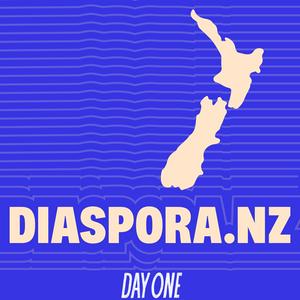
Get the free radio.net app
- Stations and podcasts to bookmark
- Stream via Wi-Fi or Bluetooth
- Supports Carplay & Android Auto
- Many other app features
Get the free radio.net app
- Stations and podcasts to bookmark
- Stream via Wi-Fi or Bluetooth
- Supports Carplay & Android Auto
- Many other app features


Diaspora NZ with David Booth
download the app,
start listening.
